As a parent, you understand how difficult it can be to keep your baby from getting into things – especially when scratching everything around them! Babies are curious and want to explore the world through their senses.
But what if you notice scratch marks on their face and delicate skin? That can be too much for a parent. If you have been struggling with this problem, do not worry—you are not alone!
Why do babies seem so scratch everything around them?
A baby is naturally curious and learning about the world around them. As a baby grows, they are exploring their environment more and more, discovering new textures and objects. Babies can scratch out of excitement or even because of itchy skin, due to conditions like eczema.
Let’s take a closer look at why babies scratch everything in sight, as well as what steps you can take to protect both your stuff and your little one’s sensitive skin.
Why Does My Baby Scratch Their Face?
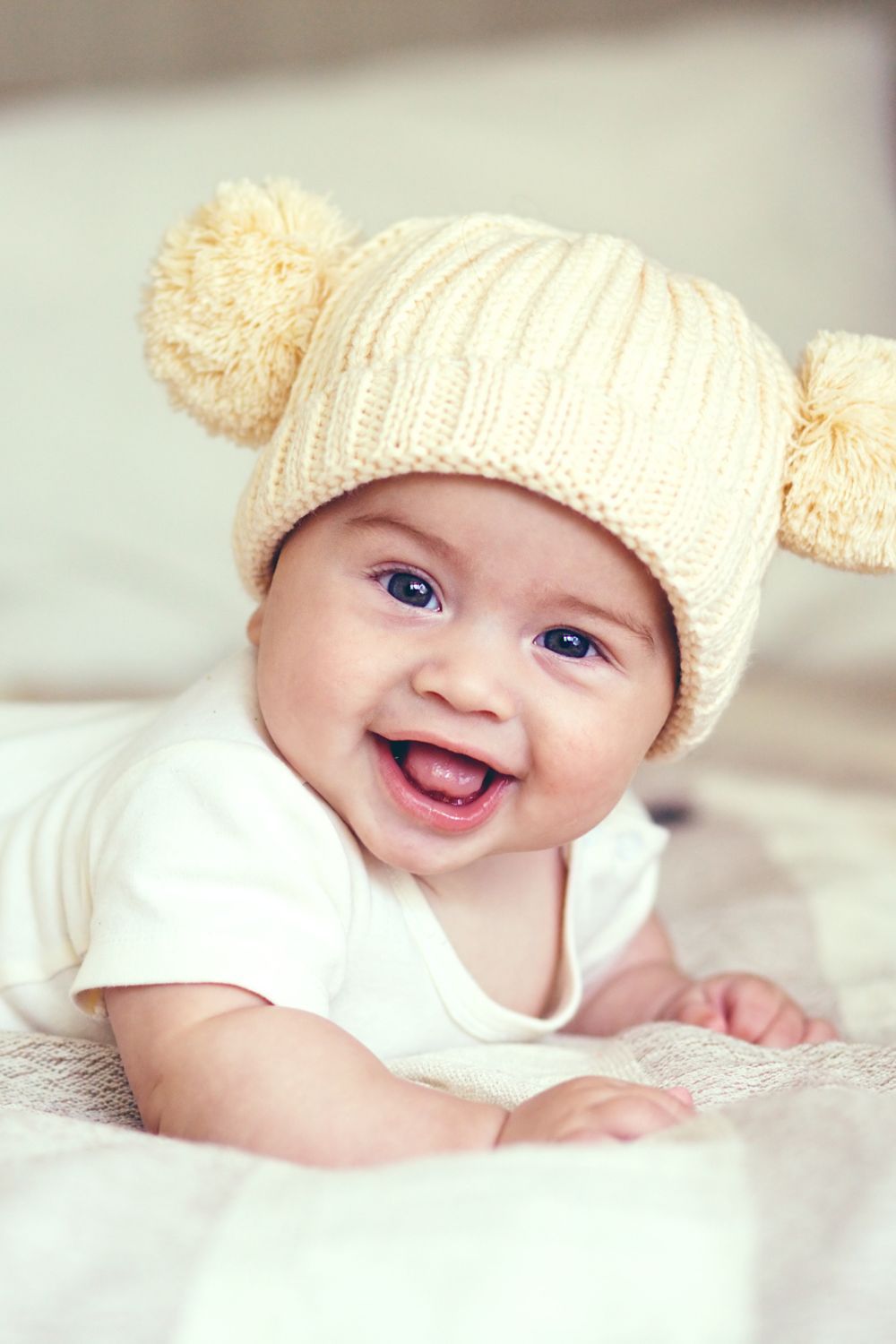
There are several reasons why babies scratch their faces.
Let us have a look at a few of the reasons why babies scratch their face.
Moro Reflex
Moro reflex is an involuntary startling reflex found in babies. Newborns have no control over their bodies. They can get startled by sudden movements or loud noises.
They arch their backs and extend their hands and legs when this happens. The tiny hands can accidentally jerk towards the face and leave scratch marks.
Moro reflex is mainly noticed in newborns. Once the baby is 3-6 months of age, it will have better control over their movements.
The instant startling reflex will be reduced; thus, the chances of sudden scratching of the face also get reduced.
Dry Skin
A newborn’s delicate skin takes time to adjust to the outside world. In the meantime, the skin becomes dry, resulting in peeling and acne.
In addition, bathing the baby too often, exposure to hot or cold weather, or using harsh soap and shampoo can also dry out the baby’s skin.
This can irritate the baby, and the baby might scratch the skin. Make sure to keep the baby’s skin moisturized and monitor the different products you use for skin irritation.
Skin Conditions
Certain skin conditions like eczema, dermatitis and scabies make the skin itchy. As a result, the baby will scratch their skin and cause irritation.
Proper treatment of these conditions can alleviate the symptoms and prevent scratching.
Also, baby mittens are a great way to keep them from hurting themselves. That as well as making sure you keep the baby nails trimmed at all times so even if they do scract, it doesn’t cause any scratches.
Exploring Their Face
A baby explores different parts of their body by touching them. The entire world is completely new to them, and they use their little fingers to explore everything, causing constant scratching.
Touching the face lets the baby understand different parts of their body, like the eyes, nose, and mouth.
This is all completely natural as they are exploring their new body and environment.
You May Also Enjoy: How To Transition Baby From Puree To Table Food?
Why Does My Baby Scratch Their Head?

If you notice the baby scratching its head, it could be because of any of the below reasons.
Frequent Bathing
If you give frequent baths to the baby, it can cause dryness in the skin as the natural oil is removed. This dryness can result in itchiness and scratching of the head.
One way to prevent dryness from frequent baths is to give shorter, less frequent baths. Find gentler soaps and moisturizers that will keep you baby’s skin nourished.
Water temperature is also a big factor. Hot water is very drying, so make sure the water is warm and comfortable. Once bathed, apply a hypoallergenic moisturizer to the baby’s skin to recover any moisture loss.
Chemicals In Shampoo
Though most baby products are marketed as allergen free, some ingredients in the shampoo can irritate the baby’s delicate scalp.
As a result, the baby starts scratching their head.
Make sure to read the full ingredient list on baby products when picking out a shampoo. Look for gentle, non-irritating ingredients.
Ingredients such as oatmeal, shea butter, and honey help sooth and protect your baby’s scalp, causing less scratching.
Also, try organic and hypoallergenic products if it’s still causing irritation.
Eczema
Eczema is a skin condition in which patches of skin become inflamed and rough. This can cause irritation in the skin, and the baby tends to scratch it.
Eczema is usually characterized by red, scaly patches on the skin. They can be very itchy and cause a lit of discomfort.
Typically, treatment for eczema involves keeping the skin very moisturized with hypoallergenic products.
With eczema, it’s also very important to keep the baby from scratching to avoid more irritation and skin infections.
You may also want to talk to your baby doctor as they may prescribe topical steroids and antibiotic creams. These can reduce itching and scratching overall.
Food Allergy
If the scratching of the head started after introducing any new food item, it could be the result of a food allergy.
In that case, you should stop the newly introduced food to see whether the scratching stops.
Some babies scratch their heads when they feel bored or sleepy. In this case, putting the baby to sleep or changing place can stop the scratching.
Common signs and symptoms of food allergies include hives, swelling, rash, facial congestion or discoloration, and abdominal pain or vomiting.
An elimination diet may be needed to pinpoint what exactly is causing the irritation. Talk to your doctor immediately if you think a food allergy could be the cause of the chronic scratching.
Why Do Babies Scratch Everything?
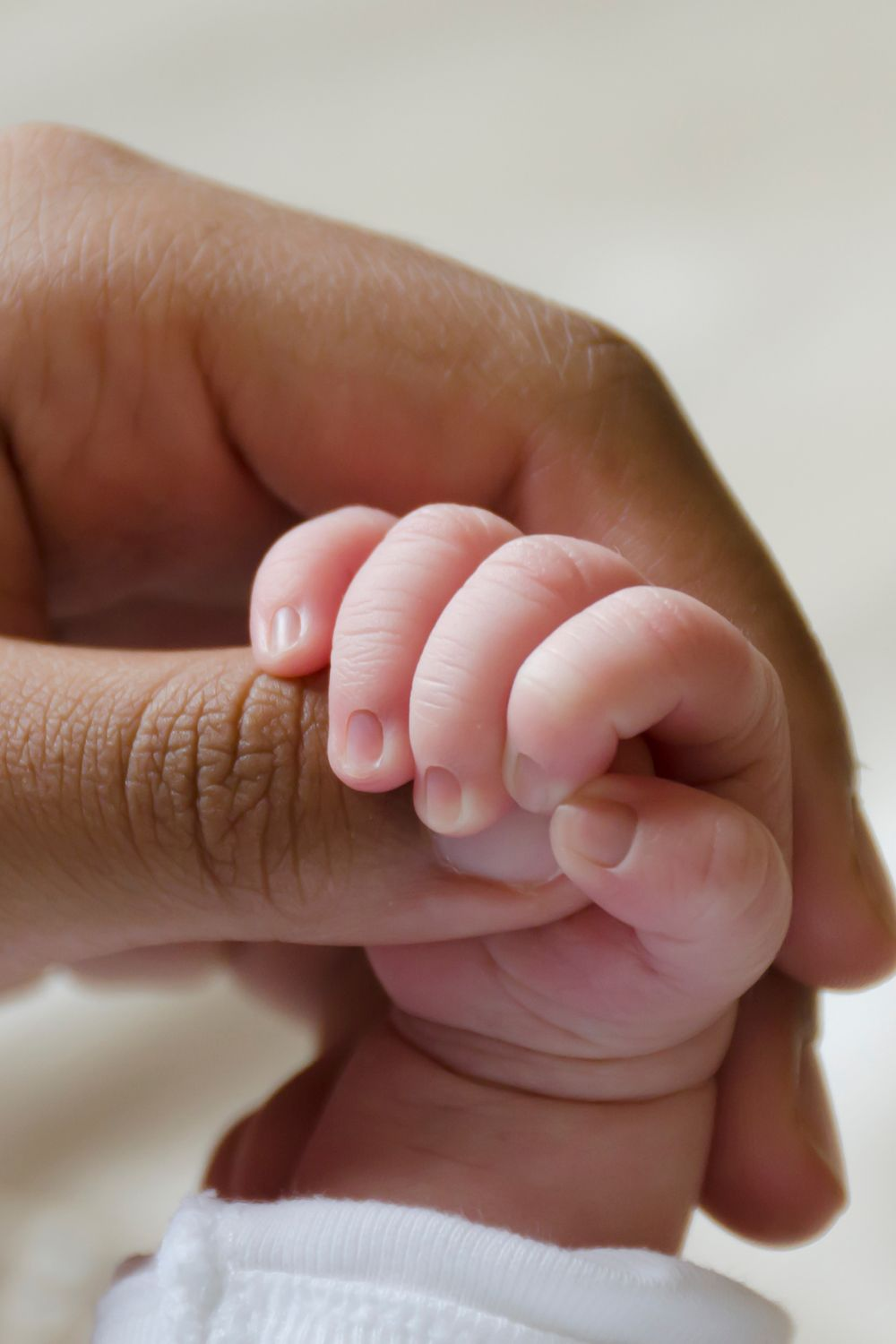
As the baby grows, you will notice them scratching surfaces, including their clothing and body, for no apparent reason. But they are actually scratching for various purposes.
One thing you should keep in mind is that scratching is normal behavior. You don’t need to worry or feel tense seeing the baby scratch everything, so long as they aren’t causing damage to their delicate baby skin..
Build Awareness About Things Around Them
Scratching surfaces provides the baby with information about the surface’s texture and hardness. This helps the baby get a feel of the different surfaces and provides a better understanding of things.
Through this action, they gradually learn about the hardness, softness, and shapes of different surfaces. Scratching helps them develop better control of their hands and fingers.
In general, this is one of the first ways a baby explores their world and surroundings.
Release Energy
Babies also build up energy within them through proper diet. When the baby is small, they cannot vent their energy by walking, running and playing.
They can only release energy through small actions like scratching surfaces. If the scratching is accompanied by laughs or any pleasant action, it means that the baby is happy with the act.
In order to help your baby release energy in a more productive way, you can encourage them to do activities such as bouncing up and down, giving them toys, or even making bubbles with their body during bath time.
Physical activity helps boost your baby’s energy levels and strengthen their muscles, making them less likely to scratch themselves accidentally.
Relieve Stress
There are times when babies and toddlers develop stress. Introducing new food or moving to a new place can all create stress on the baby, even without realizing it.
The only way they can relieve this discomfort is by scratching surfaces. Stressed-out babies scratch not only surfaces but sometimes their own bodies.
If you think the scratching is due to stress, find ways to relieve the baby’s stress in more helpful ways. Things like cuddling, hugging, and speaking soothingly are simple but effective ways of helping your baby destress.
It may seem silly to think a baby has stress, but they are little people who get frustrated and need to relieve themselves somehow.
Massage is another great method to help your baby relax and reduce any physical tension they feel.
You May Also Enjoy: Baby Jumper Vs. Walker
Why Does My Baby Scratch Me?
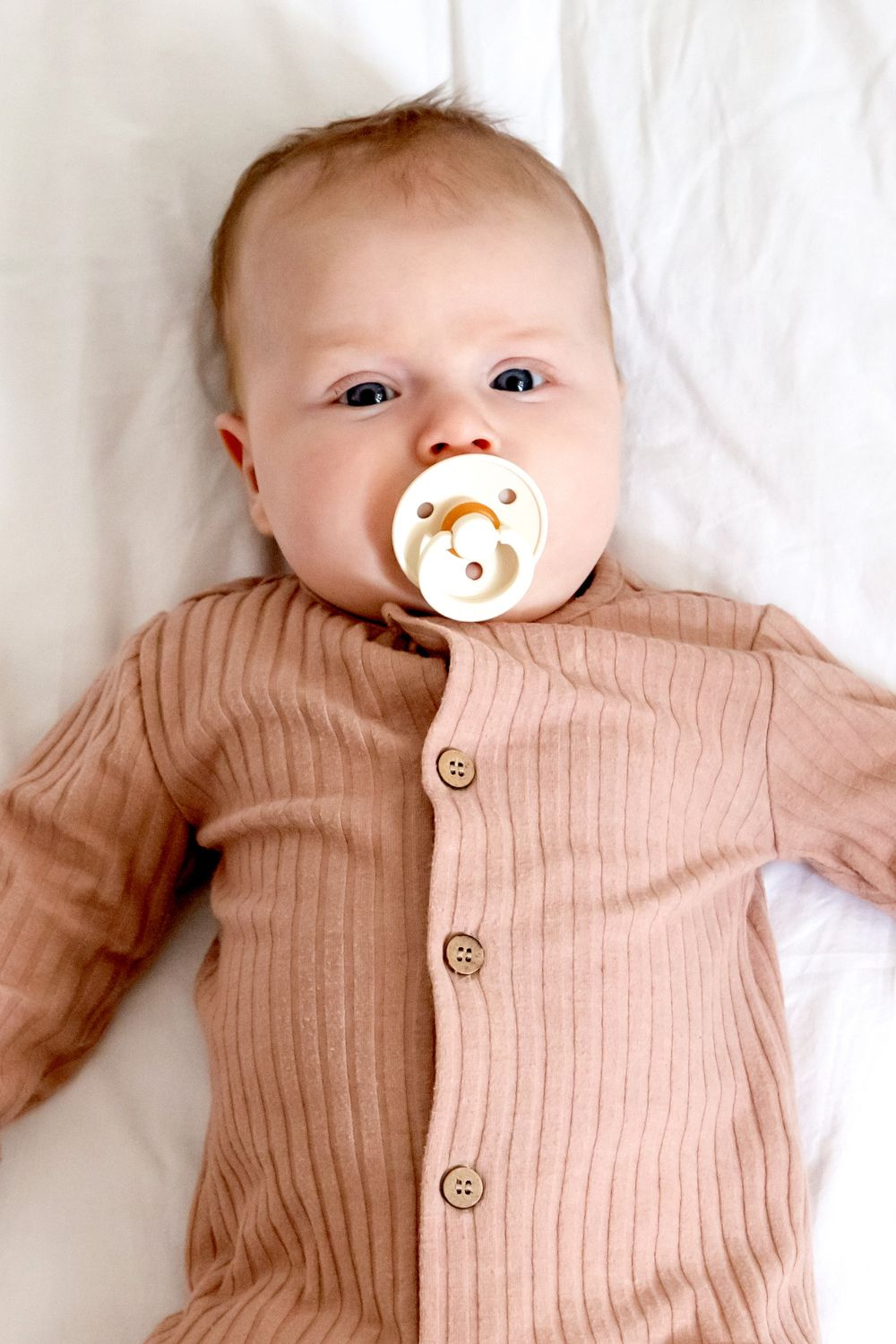
Sometimes you will notice the baby scratching, biting, and pinching. This could be because of various reasons. A few of them include:
Frustration
Scratching is one way your baby tries to communicate something to you. A baby cannot articulate their feelings the proper way.
The only way they can convey this is through their actions. Scratching is one way of telling that they are frustrated.
Scratching isn’t the only way they express frustration, though. If your baby is crying, throwing toys, or shoving objects, it can be a clear sign they are overwhelmed and frustrated.
It’s important to develop patience and understanding in order to recognize your baby’s feelings and provide the support they need when they do get frustrated.
Allowing them to explore their environment, providing playtime, and offering numerous breaks can help ease them and cause less scratching impulses overall.
Exploring
As with exploring their surrounding by scratching, the baby might scratch your face and bite it to check whether it is hard or soft.
If the baby scratches too hard on you, you can gently pull away the baby’s hand. For babies above one year, you can even explain that the scratching hurts you.
In case of the baby bites, you can place two fingers in their mouth and slowly separate the jaws.
Giving babies age-appropriate toys, allowing them to explore their environment and discover new things, plus allowing them to express their creativity is a great way to allow them to explore in a productive manner.
How Can You Prevent The Baby From Scratching Their Face?
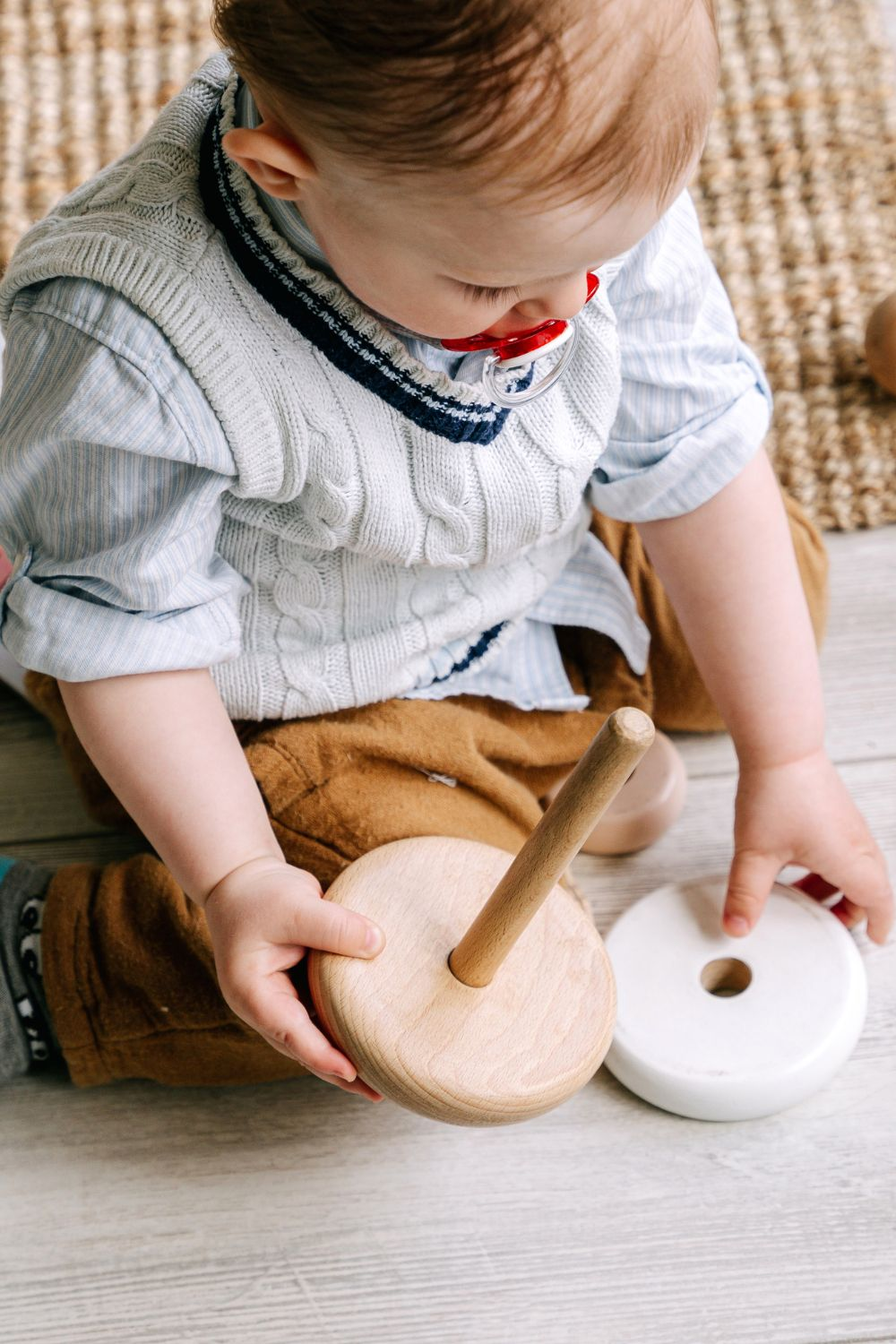
Trim Their Nails
Babies have very sharp nails, which can leave scratch marks on their faces and body. The solution to scratching is to trim their nails using a baby nail clipper.
As baby nails grow very quickly, you’ll want to trim them once a week. You can trim it when the baby is sleeping or while feeding them.
Trimming the nails requires a lot of patience and is a time-consuming process. If trimming seems scary for you, consider filing the nails instead with a soft nail file or emery board.
Don’t use scissors, as they can be dangerous if not used properly.
Use Mittens
Mittens are small gloves meant for babies. Though the main purpose of the mitten is to keep the baby’s palms warm, you can also use it to protect them from scratching.
You can use baby socks instead if you do not have mittens handy. However, make sure that there are no strings or accessories in the mitten that could harm the baby.
Try Swaddling
Swaddling is the technique of wrapping the baby in a blanket with both hands on either side. When swaddled properly, the baby cannot move the hands and scratch the face.
The primary purpose of swaddling is to create a cozy environment for the baby to sleep. But you can also use the same technique to keep the baby from scratching the face.
Since the baby’s hands are securely tucked away in the swaddle, they won’t be able to scratch themselves. This obviously only works for very young babies.
Moisturize The Skin
If scratching is caused by skin dryness, moisturizing the same will provide relief from itchiness and scratching.
Using an unscented moisturizer that does not irritate the skin twice a day would be best. Make sure the moisturizer is specifically designed for babies and void lotions with fragrances, essential oils, and harsh chemicals.
Also, limit the number of times you give the baby a bath to prevent excessive skin dryness.
Apart from using a moisturizer, trimming your baby’s nails regularly will also help prevent scratching caused by dry skin.
Treat Irritated Skin
If you feel that the itching is caused by irritated skin, you should find the cause and get it treated.
You can either apply a moisturizer or consult a pediatrician and treat the itching.
Prompt treatment of irritated skin is highly essential to ensure that it does not result in any infection.
What Are Some Tips To Prevent Scratching?
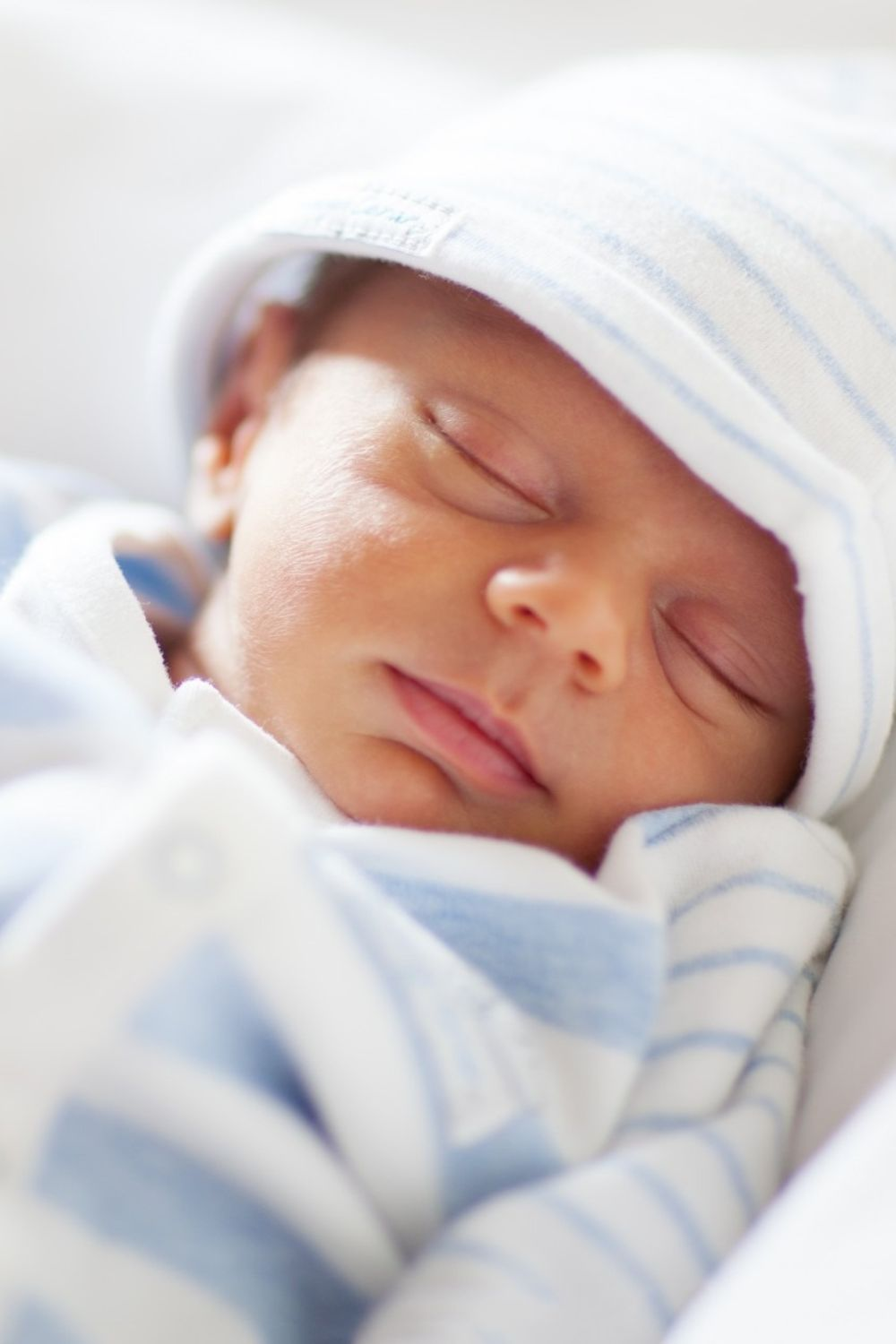
- Make the baby wear comfortable clothes made of 100% cotton. It would be best to avoid synthetic materials like polyester for dressing or as bedding.
- If the weather is dry, try to use a humidifier.
- Sometimes, sweating can cause irritation resulting in itching. If you think the baby sweats a lot, you should adjust the room’s temperature to a comfortable level.
- Avoid bubble products while giving baths, as they irritate the baby’s skin.
- If dry flakes are on the baby’s scalp, gently brush them and remove them.
When Should You Take Notice Of Scratching Behavior And Stop It?
Scratching is considered normal behavior in babies and toddlers. But there are times when you should take notice of it and try to stop it.
Below are a few of the instances were you should notice the scratching and take necessary action.
Continuous Scratching Of Their Body
If the baby continuously scratches their body, especially a certain part, it indicates some health issues. It can be a fungal infection or excessive dryness in that area.
If the baby gets irritated and starts crying because of the discomfort, it is time to consult a doctor.
The doctor will prescribe some medicines or recommend a change of baby care products to relieve the baby.
Scratching Others
Once the baby is close to a year and continues scratching others, it is time to pay attention to the behavior.
The baby should be made aware that scratching others is bad behavior, and they must stop that.
Once the baby grows older, stopping this habit can be difficult. That’s why it is best to stop the scratching behavior once the baby is around one year old.
Scratching Followed By Weird Behavior
If your baby is more than one year and starts scratching, accompanied by weird behavior like shouting and screaming, you should pay attention to it.
It could be that the baby has some behavioral disorder which needs to be addressed by a qualified psychologist.
How To Treat A Scratch On The Baby’s Face?
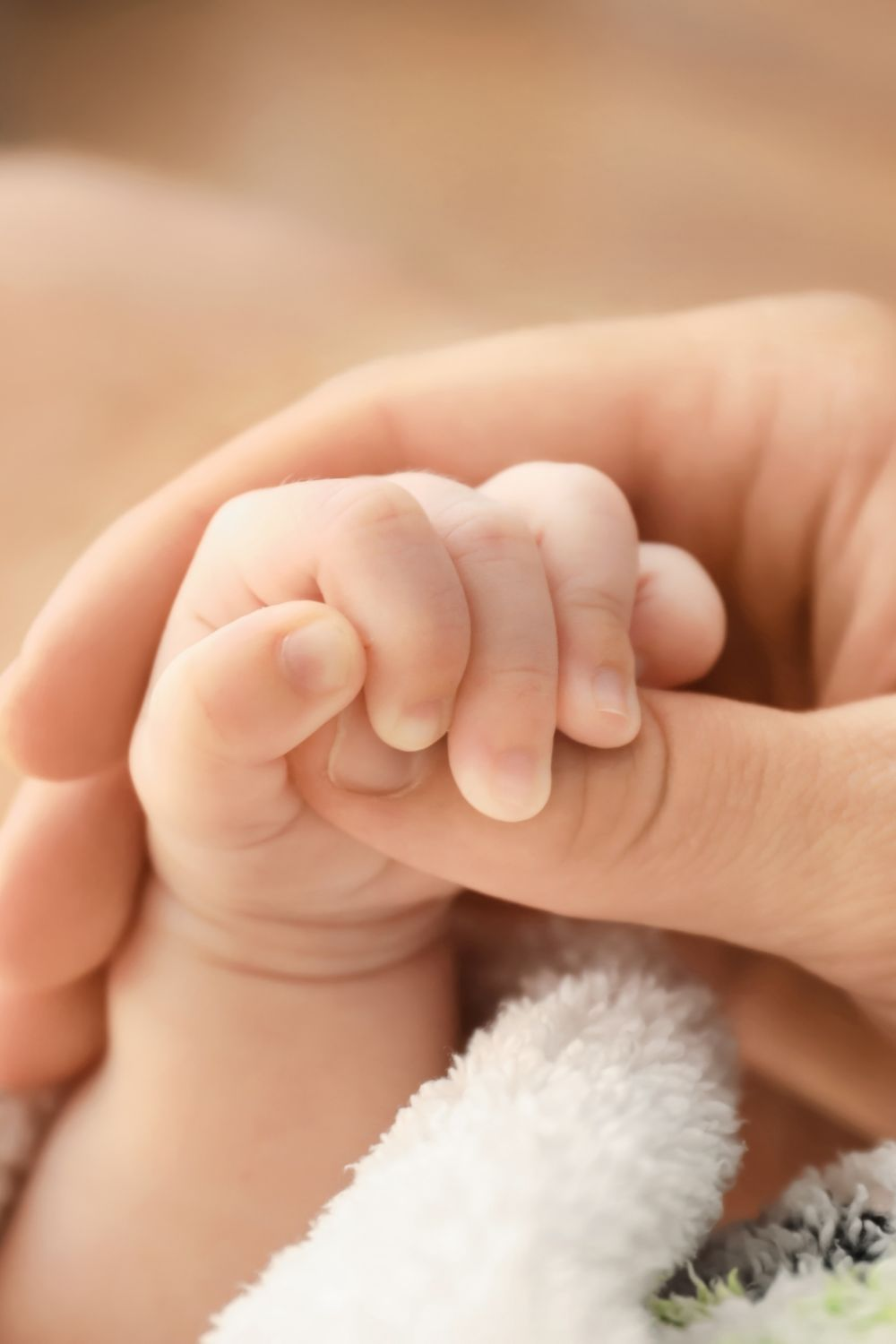
Preventing the scratch is better than treating it. However, if you notice any scratches on the baby’s delicate skin, you can follow the below steps.
- Clean the scratch with lukewarm water and antibacterial soap.
- Pat the scratch dry with a clean towel.
- Apply any antibacterial cream or moisturizer and leave the scratch open.
Conclusion
Baby scratching their face or any other surface is very common. If the scratch is annoying you, you can make the baby wear mittens or socks to prevent the scratch. You should also trim the nails at regular intervals.
Baby’s usually scratch other surfaces to understand their hardness and texture. Thus, it is part of their healthy growth.
However, if the baby shows weird behavior along with scratching, you should consult a doctor to rule out any behavioral issues.
FAQ
Yes, scratching by babies is normal behavior. Newborn babies have very little control of their hands and fingers.
Thus, they scratch their face and body unknowingly. As the baby grows, you will notice them scratching surfaces.
This is a way for the baby to understand the texture and hardness of the various surfaces.
For this same reason, you will notice the baby scratching your face and even biting it.
If you feel that some irritant causes the scratching and over-the-counter medicine does not relieve the baby, you should consult a doctor. Similarly, if a fever accompanies the scratching, or there are flat red spots on the skin, or if the baby cries and feels really uncomfortable, you should consult a doctor.
Newborns usually scratch their faces due to the Moro reflex. Once the baby has better control over their muscles and movement, the scratching will stop. This normally happens between 4 and 6 months.
However, some babies might develop this as a habit and might take longer to come out of it. In case of any skin conditions like eczema and dermatitis, treating the condition can stop the baby from scratching the face.
Baby’s nails are very delicate. They are not strong enough to break the skin barrier. Even if they scratch the same area repeatedly, it will leave only light marks. Thus, there is no question of scarring when the baby scratches.